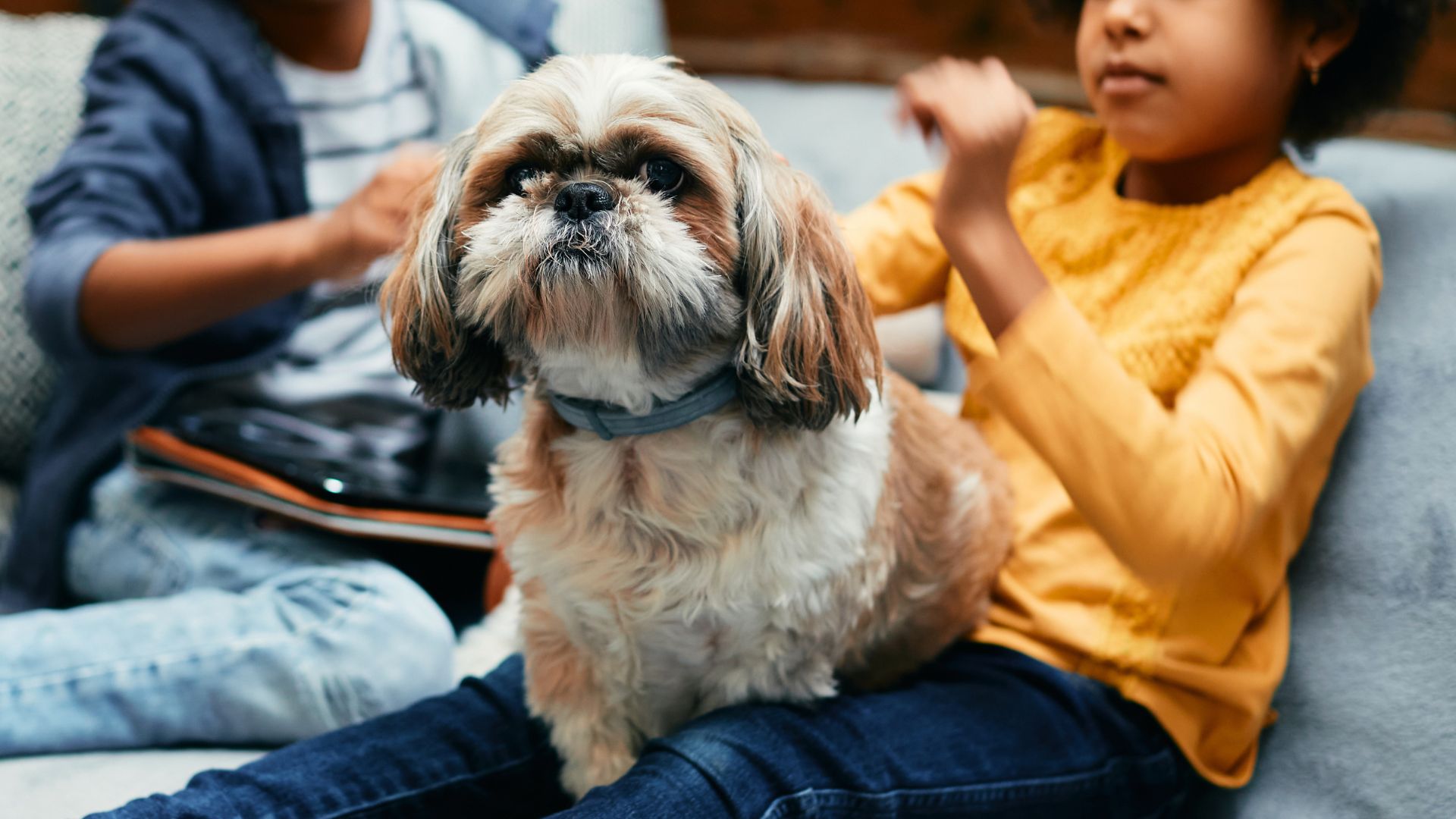The door swings open, and your grandchildren rush in with laughter echoing through the house. In an instant, a furry companion is there, tail wagging, ready to join the fun. For many families, these moments create memories that last a lifetime.
Dogs are often the first best friends of childhood, teaching kindness, responsibility, and unconditional love. Yet, not every breed is equally suited to small children. Some dogs are naturally patient and affectionate, while others may struggle with constant energy and noise.
Families need companions who respond to children with warmth, steadiness, and trust. When the right dog joins the family, the relationship between pet and grandchild blossoms into something truly special.
In this article, we’ll look at the best loving dog breeds for introducing to grandchildren.
Best Loving Dog Breeds For Introducing To Grandchildren
1. Papillon
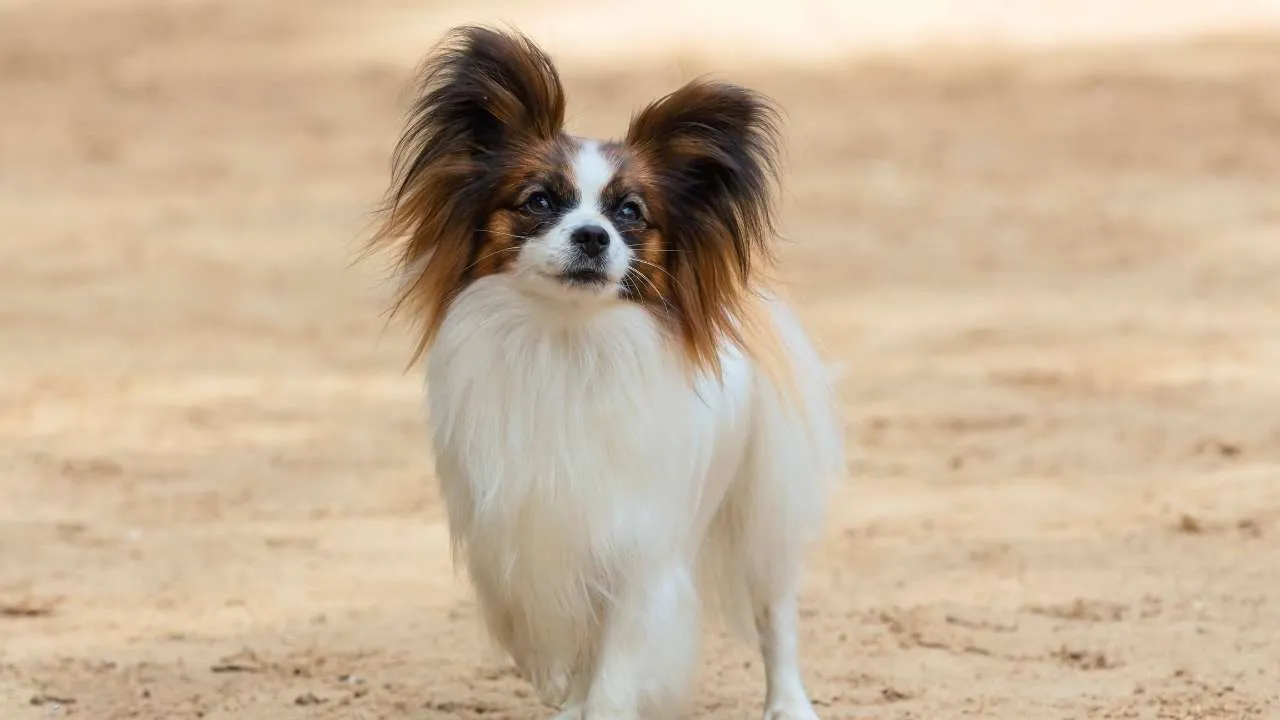
Papillons are small in size but big in energy, making them wonderful companions for grandchildren who love active play. They thrive on interaction, staying cheerful and engaged during family activities. Their lively nature keeps children entertained without being overwhelming.
Sharp Mind and Quick Learner
This breed is known for picking up commands and tricks with remarkable speed. Teaching them new games is a joy, as they respond eagerly to positive attention. Families often appreciate how easily they adapt to routines and how much they enjoy mental challenges.
Social and Gentle Nature
According to PetMD, Papillons are naturally friendly and enjoy spending time around children and adults alike. They mix well with other dogs in the household, showing a balanced temperament. Their cheerful outlook and adaptability make them a good family dog choice in multi-generational homes.
Affection and Watchfulness
These little dogs carry a big heart and form strong bonds with their families. They are considered an affectionate dog, staying close to loved ones while keeping alert to any unusual sound. Their confidence and alertness provide both comfort and reassurance in a family setting.
2. Bichon Frise
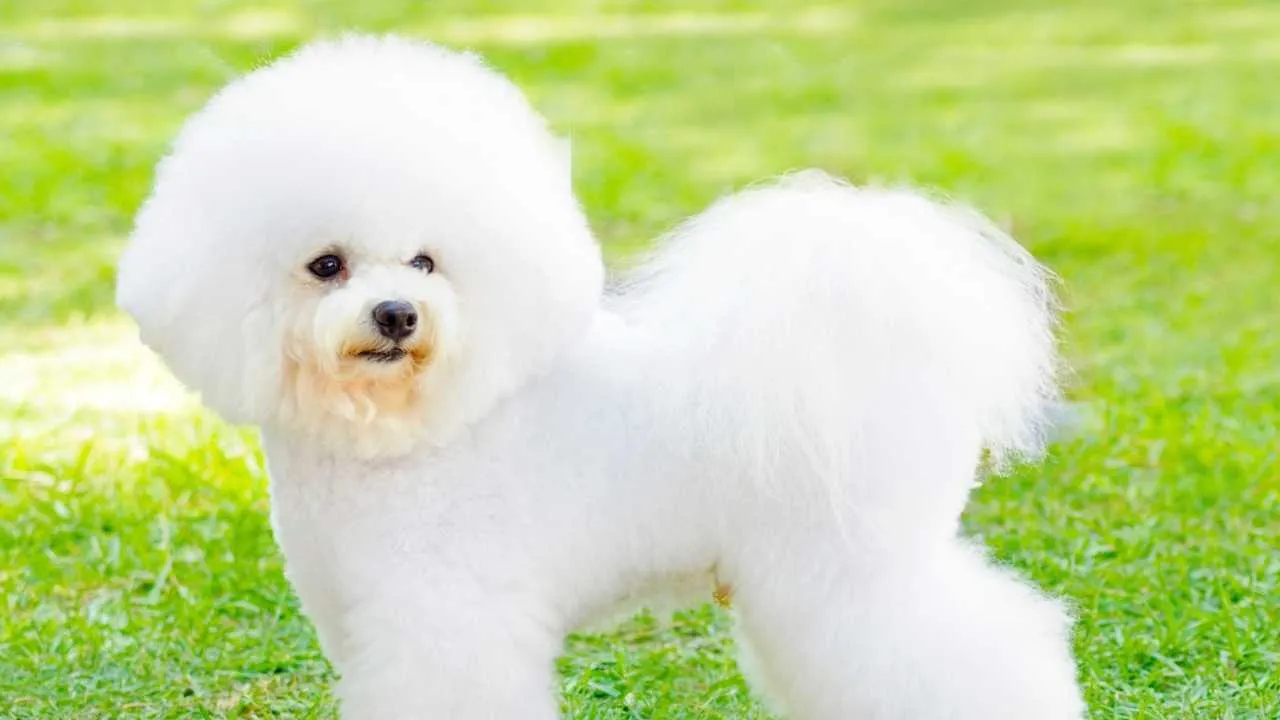
Bichon Frises carry a joyful energy that makes them a delight for grandchildren. Their lively yet gentle manner helps children build early confidence around dogs. Many families consider them among the best dog breeds for introducing young ones to a pet.
Natural Performers
These little dogs were once prized in circuses and traveling shows, which shaped their love for being the center of attention. A Bichon thrives in households that are full of laughter and activity. Their confident and amusing personality ensures they bring smiles wherever they go.
Gentle in Family Settings
Because they are adaptable and cheerful, Bichons blend easily into multi-generational homes. They enjoy the company of small children without becoming overwhelming, as Petplan stated. Their sociable character also makes them comfortable living with other pets when introduced thoughtfully.
Training and Social Balance
Bichons are intelligent and eager to please, so they respond well to consistent guidance. A few key points highlight their family value:
Early socialization reduces excessive barking.
Proper routine helps prevent separation anxiety.
Their willingness to learn makes them great dogs for structured family life.
3. Golden Retriever
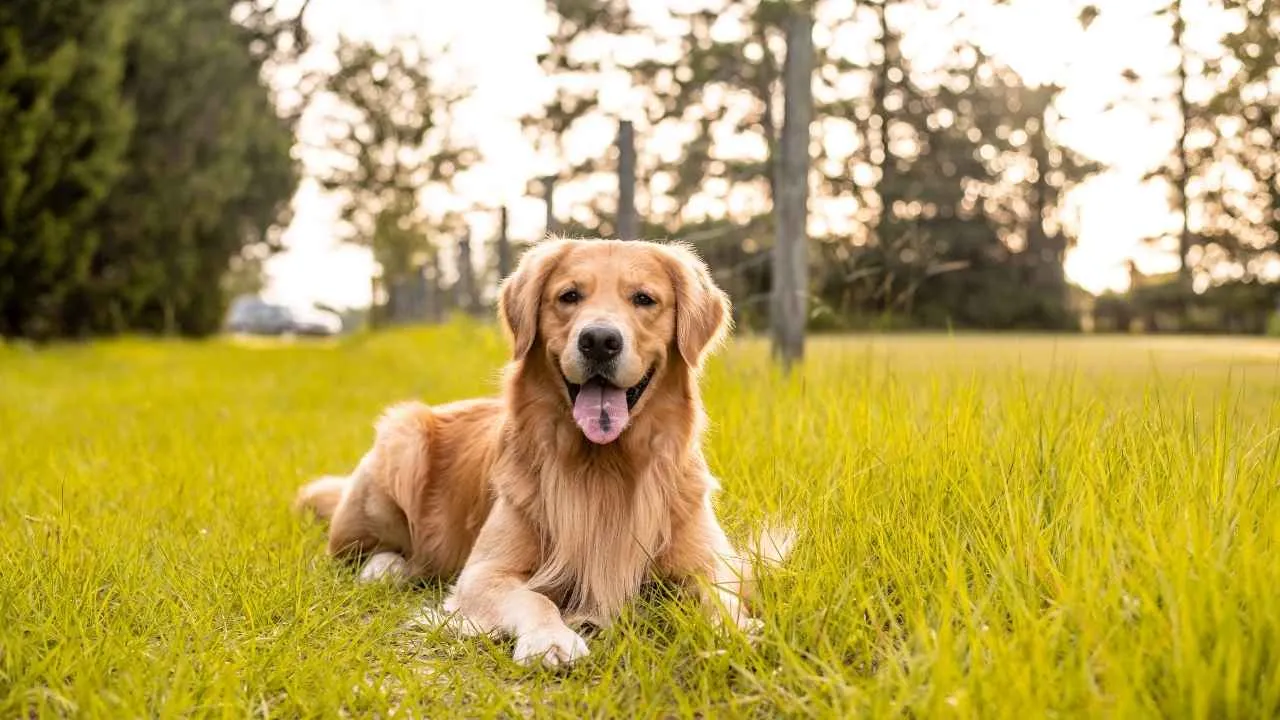
Golden Retrievers are known for their gentle patience, making them one of the most trusted breeds for households with young grandchildren. Their affectionate personalities help kids feel secure, while their even temper reduces the risk of unpredictable behavior during play.
Intelligent and Eager to Please
Originally bred as gundogs, they carry a strong instinct to work closely with people, which translates into exceptional responsiveness during family interactions. Their intelligence and attentiveness allow children to engage them in games, creating a bond that grows stronger with every shared activity.
Adaptable Companionship
These dogs are excellent family dogs because of their ability to match the household’s pace, whether that means quiet indoor time or energetic outdoor adventures. As a canine companion, Golden Retrievers remain consistent in affection, bringing joy not only to children but to grandparents as well.
Energetic and Fun-Loving
Golden Retrievers enjoy active environments where they can join in on family outings and play sessions. They thrive when given both mental and physical tasks, making them an ideal choice for families who want a dog that blends loyalty with a lively spirit.
Enjoys long walks and family hikes
Responds well to training and games
Rarely shows aggression, even to strangers
4. Pug

Pugs have a long history of being bred as companion animals. Their cheerful nature makes them easy to welcome into a family home. They thrive on interaction and enjoy being part of everyday routines with both children and adults.
Adaptable for Families
Their small size and moderate exercise needs allow them to adjust to almost any family’s lifestyle. Whether in a house with a yard or an apartment, they remain content as long as they are around people. This adaptability is one reason they remain popular as household pets.
Gentle Playmates
Pugs are sturdy enough to keep up with active children but gentle enough not to overwhelm them. They often form bonds quickly and enjoy sharing space with other pets. For grandchildren who may already have four-legged friends at home, the Pug usually blends in with ease.
Long-Lasting Loyalty
These dogs typically live 12–15 years, giving families many years of affectionate companionship. An older dog in this breed can be especially calm, offering comfort and steady company for kids. Their loving and steadfast loyalty make them a perfect dog for growing families.
5. Cavalier King Charles Spaniel
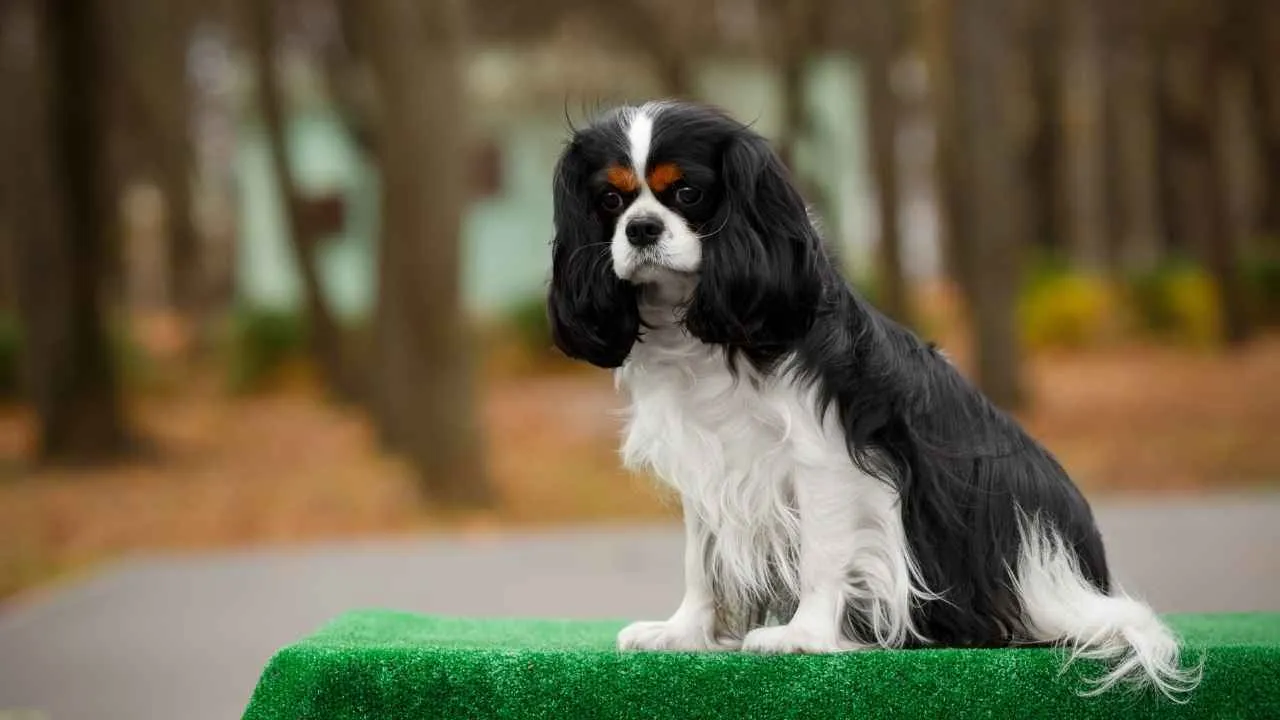
These dogs were bred for companionship and continue to excel in that role today. They thrive on affection and form close attachments with family members, often following them from room to room. Their warm and affectionate temperament helps them adapt seamlessly to households with varying routines.
Adaptability in Family Life
Cavaliers adjust well to both city apartments and larger homes in the countryside. Their small size makes them easy to manage, but their playful spirit ensures they fit into active family lifestyles. They are happiest when included in daily activities and struggle if left alone for long stretches.
Interaction with Children
They are naturally patient, but supervision is always recommended during playtime, especially with younger kids. Cavaliers are generally well-behaved when socialized early, learning to enjoy the company of people across all age groups. With older children, their gentle personality allows for safe and enjoyable interaction.
Daily Needs and Balance
These dogs benefit from regular exercise and mental stimulation to keep them engaged. Families should provide a calm space where the dog can retreat if play gets overwhelming. Consistency in routine makes them feel secure, and they reward this structure with steady affection and care.
6. Shih Tzu
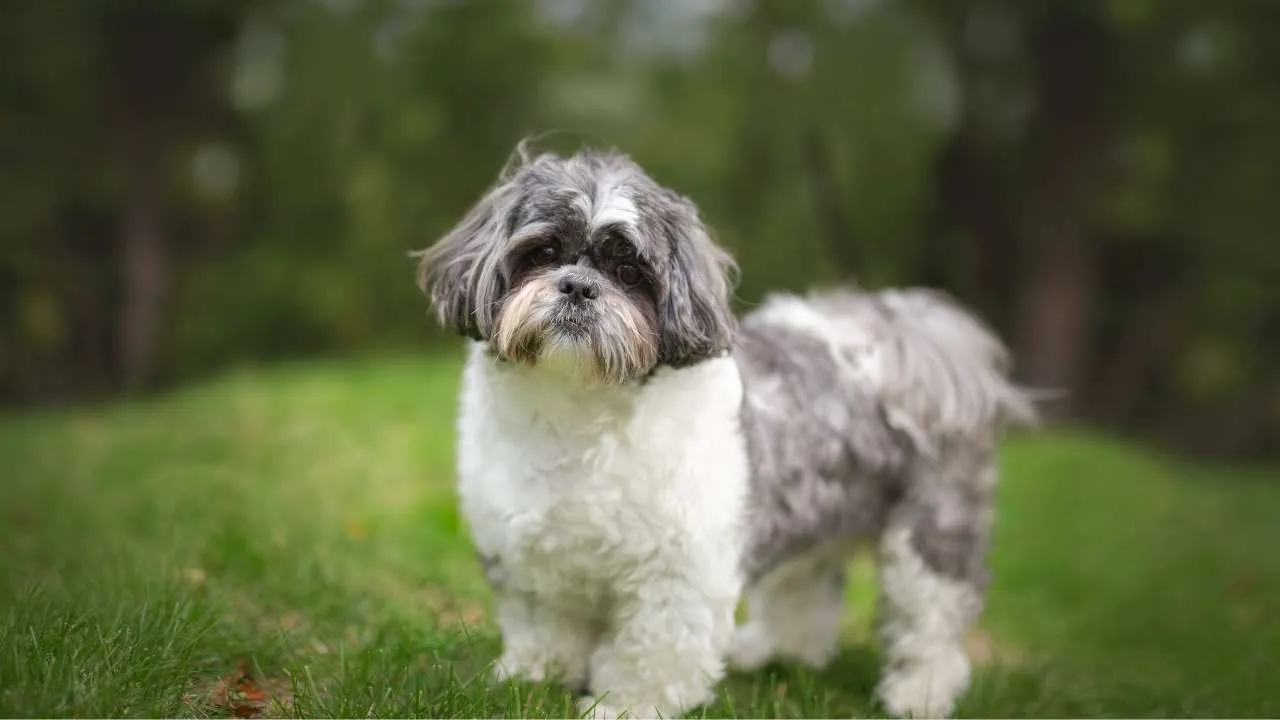
The Shih Tzu has a patient temperament that helps it adjust well to homes with young children. They enjoy sitting with kids during quiet time just as much as they enjoy a playful backyard game. Their natural adaptability is one of the reasons families continue to trust them around grandchildren.
Misunderstood Reputation
This small dog breed is sometimes thought of as too delicate or high-maintenance for active households. In reality, they are sturdy little companions that can enjoy play while still knowing how to be gentle. Their ability to sense when to calm down makes them reliable for interactions with younger children.
Playful and Social
Shih Tzus thrive in family settings where there is regular attention and interaction. They are often seen as therapy dogs due to their warm and loving nature. Some of their best qualities for children include:
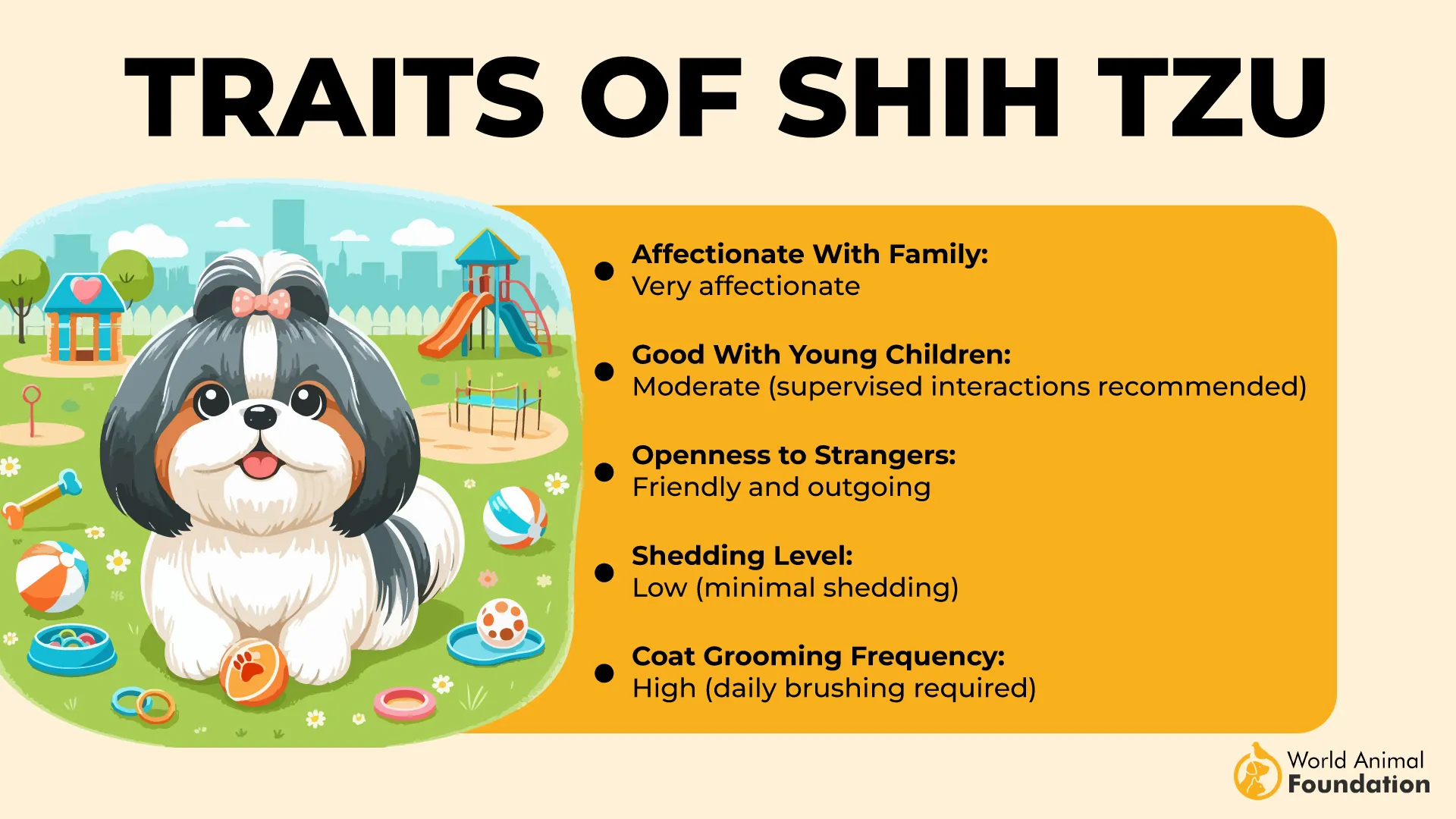
Soft, friendly demeanor that welcomes affection
Playful energy that encourages outdoor activity
Loyalty that strengthens their bond with family members
Training and Bonding
While they can be a little stubborn, many dogs of this breed respond well to consistent routines and positive reinforcement. With proper guidance, they can become easy to train and safe around children’s activities. Over time, their closeness makes them feel less like pets and more like a best friend to the family.
7. Havanese
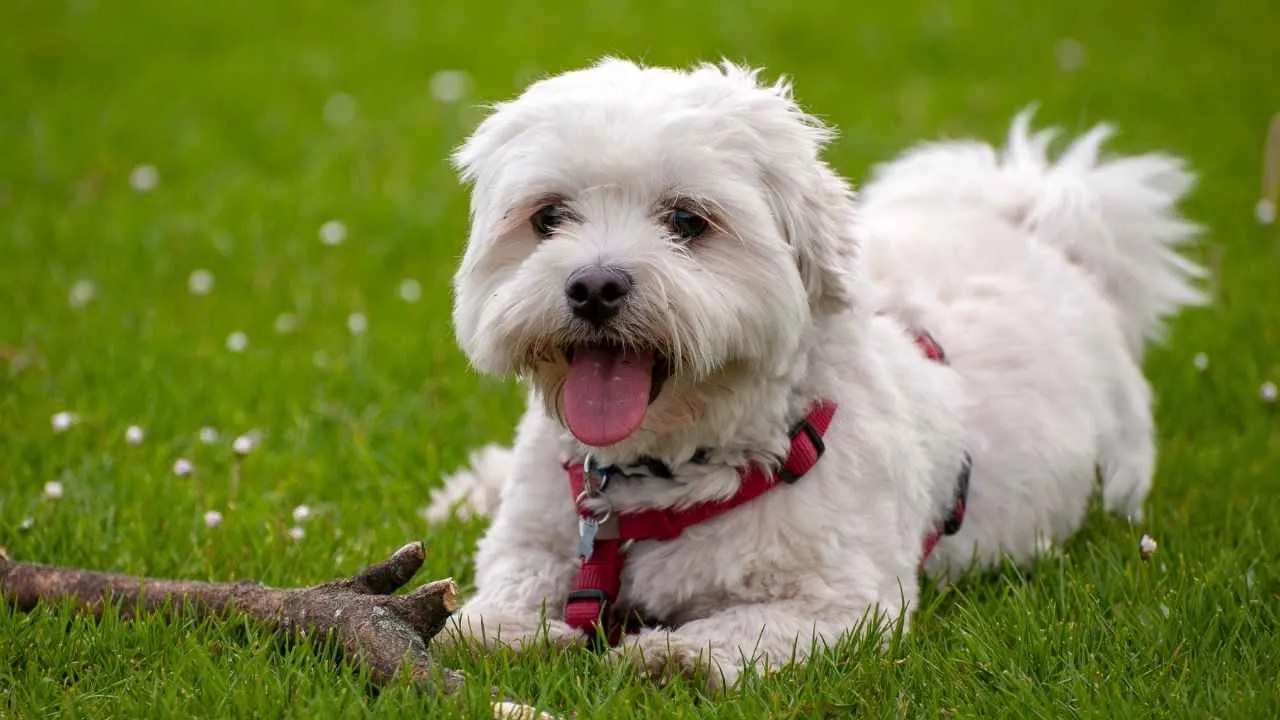
The Havanese has a naturally gentle temperament, making interactions with children calm and enjoyable. They adapt well to a lively household, quickly reading social cues from kids. Their smaller size also allows them to feel approachable for young grandchildren.
Playful Companionship
This breed thrives when included in games and activities, showing a mix of patience and enthusiasm. They enjoy interactive play that matches the energy of children, whether it’s chasing toys or learning small tricks together. Their lively personality keeps them engaged without being overwhelming.
Adaptability in Family Settings
The Havanese is highly sociable and fits into multi-pet households, easing concerns when visiting families that already have dogs or cats. They are also intelligent and trainable, making it easier to set boundaries in a home with grandchildren.
Quick to learn routines
Responds well to positive reinforcement
Adjusts easily to indoor family life
Need for Companionship
Although affectionate and loving, they depend strongly on human interaction. Long periods of separation can lead to anxiety, so families that spend plenty of time together suit them best. Their eagerness to be included strengthens their bond with grandchildren.
Conclusion
When grandchildren and dogs come together, families discover moments filled with joy and trust. The best breed for each home depends on lifestyle, whether a playful companion or a low-energy dog fits best.
Some breeds require extra grooming, teaching kids patience and care, while gentle giants create safety through their calm presence. For older adults, companionship and adaptability often matter most.
These dogs don’t need to be guard dogs to offer protection. Their loyalty provides enough comfort. With the right match, your family gains more than a pet; you welcome a lifelong friend into your grandchildren’s world.


